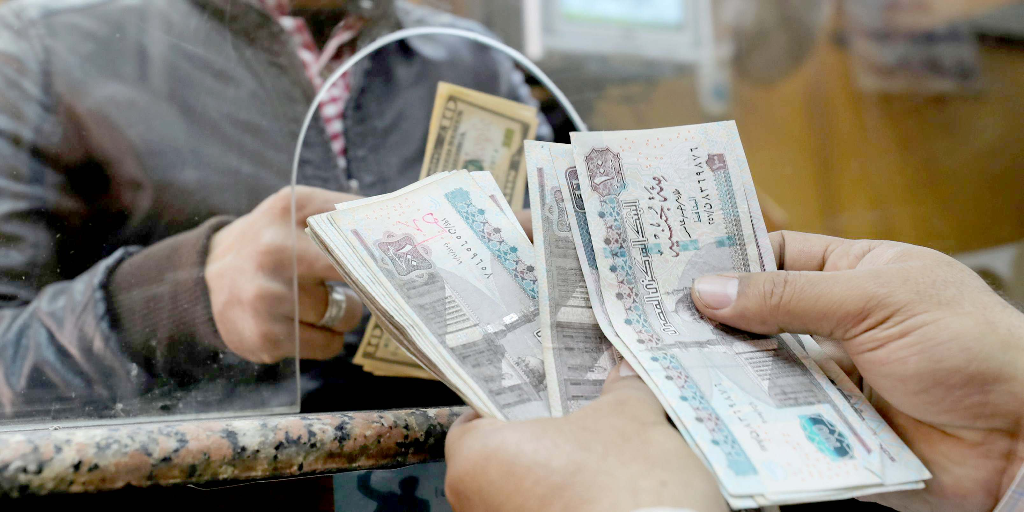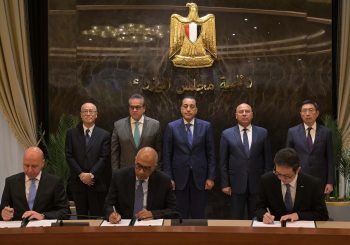The Monetary Policy Committee (MPC) of the Central Bank of Egypt (CBE) announced the raising of key interest rates on 30 March, amid soaring inflation that has been affecting businesses and private citizens alike.
The news made the rounds in Egypt as a major development, but to some, the aim of such a decision and its direct effects were unclear.
Here, Egyptian Streets answers a few questions that may help clarify some of the details of this change.
Why were the key interest rates raised and what does the decision aim to achieve?
Interest rates are the percentage of return on deposits as well as the cost of borrowing money that is paid back along with the borrowed amount. Lower interest encourages people to spend, rather than save their money, and borrow and spend even more on housing or purchasing expensive goods, or investing in business, for example.
On the other hand, higher interest rates encourage people to save more of their income, to benefit from the higher returns and avoid borrowing at a higher cost.
By raising interest rates, the CBE has incentivised saving and depositing money, rather than keeping it liquid for spending. People will certainly continue to spend and consume, but the share of their income that they designate for spending will decrease in favour of the share they set aside and deposit, thus taking it out of circulation.
How will this change affect Egyptians?
This change is likely to affect different groups in society differently. For example, to a business owner, higher interest rates could mean higher cost on capital. Businesses regularly borrow and use credit. When interest rates rise, the cost of credit and borrowing increases, making business less profitable, and decreasing demand for their products or services.
Meanwhile, for people with savings, higher interest rates mean an opportunity to earn more on those savings.
Finally, the contractionary effect of rising interest rates may affect people who fall into neither of the above categories. Higher interest rates result in reduced supply and demand, contracting the country’s economy, thus affecting the activity of businesses and the job market. This contraction affects the spending ability and livelihood of private citizens.
How does this tie in with the current inflation and devaluation?
The CBE’s decision to raise interest rates is a direct response to the soaring inflation taking place in Egypt, and was projected to occur by many analysts prior to the announcement.
In recent months, and as a result of the significant devaluation of the Egyptian pound, many have been electing to save or invest through other means than the local currency. Those who have been able to, exchanged pounds to US dollars or other steadier currencies, while others invested in gold or real estate.
Raising interest rates and thereby enticing Egyptians to save their money in Egyptian pounds is likely to raise the demand on the local currency. Egyptians who had exchanged their savings into US dollars are encouraged to reacquire Egyptian pounds, as the yield on those may be higher.
However, for Egyptians to be encouraged to do that, interest rates would have to be higher than the rate of inflation. That is to say that if an Egyptian were to deposit EGP 100 at the bank, knowing that the Egyptian pound will devalue by 20 percent, they would need the interest rate to be higher than 20 percent if they wish to ensure that the value of the deposited money actually increases.
As Egypt grapples with its current currency crisis, most are uncertain about how their decisions will fare in the long run. However it is the hope of the government this decision will help mitigate the effects of rising prices and revive the value of the Egyptian pound.






Comments (4)
[…] The National Bank of Egypt and Banque Misr announced the issuance of two new certificates of deposit (CDs) for a period of three years on Sunday, 2 April, reflecting the Central Bank of Egypt’s policy to target inflation. […]
[…] The National Bank of Egypt and Banque Misr announced the issuance of two new certificates of deposit (CDs) for a period of three years on Sunday, 2 April, reflecting the Central Bank of Egypt’s policy to target inflation. […]